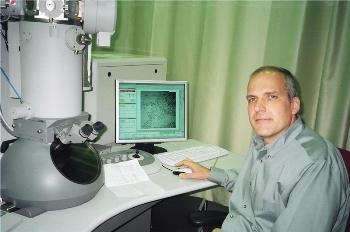A team of scientists doing research at the Hebrew University of Jerusalem has modified nanocrystal characteristics with impurity atoms through a process known as doping.
This development will enable creation of enhanced semiconductor nanocrystals. Semiconductor nanocrystals are applicable in solid-state lighting, solar cells, and bio-imaging.
 HUJ's Prof. Uri Banin
HUJ's Prof. Uri Banin
Semiconductors need to be tuned by additional impurities to make them conductive. External atoms or impurities are injected into the semiconductor to enhance its electrical conductivity. The semiconductor industry at present spends billions of dollars in its endeavors to inject impurities into semiconductor substances, leading to the development of multiple electronic solutions such as computer chips, light emitting diodes and solar cells.
Professor Uri Banin and David Mocatta, a postdoctoral student of the Center for Nanoscience and Nanotechnology, have created a direct, room- temperature chemical response to injecting metallic impurities into the semiconductor nanocrystals. Working with Professor Oded Millo of the Hebrew University and Guy Cohen and Professor Eran Rabani of Tel Aviv University, they have managed to explain how the impurities impact nanocrystal properties.
The research paper was published recently in the journal Science. It will help scientists to explore new applications with nanocrystals such as electronics, optics, sensors, nanolasers and alternate energy sources.
Source: http://www.huji.ac.il/